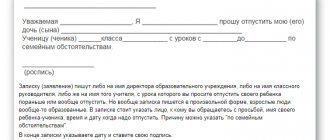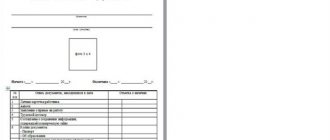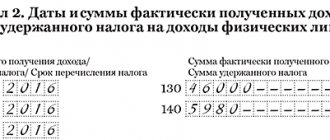The implementation of labor by personnel in conditions classified as hazardous and particularly hazardous must be accompanied by workers regularly receiving milk and special food free of charge. A specialized diet provides for the implementation of a therapeutic function with a preventive bias to minimize the impact of harmful factors at work on the human body. The obligation of employers to provide free food and dairy products is enshrined in law in Art. 222 Labor Code of the Russian Federation.
Question: Is personal income tax subject to the free distribution of milk (equivalent food products) to employees for working in hazardous working conditions, if a special assessment of working conditions (job certification) was not carried out or, based on the results of such assessment (certification), the conditions were not recognized as harmful (clause 1 Article 217 of the Tax Code of the Russian Federation (until December 31, 2019 inclusive - clause 3 of Article 217 of the Tax Code of the Russian Federation), Article 222 of the Labor Code of the Russian Federation)? View answer
What are the rules for issuing milk and providing special meals to employees?
Milk and special food at work sites are provided in strict compliance with the standards of a number of regulatory documents. Among them:
- Government Decree No. 168 dated March 13, 2008, which sets the standards for products issued and the assignment of compensation payments when replacing special food with monetary compensation;
- Order No. 45n dated February 16, 2009, issued by the Ministry of Health and Social Development, which stipulates the conditions for the free provision of dairy products;
- Order No. 46n dated February 16, 2009 (author of the document is the Ministry of Health and Social Development), providing a list of positions and areas of activity for which there is an obligation to provide medical or special dietary nutrition to personnel.
IMPORTANT! The decision made by the company's management about the presence of harmful factors at work must be confirmed by the conclusions of a special assessment of workplaces.
Those employees whose work is accompanied by exposure to harmful factors on the body can apply for dairy products free of charge. When working conditions deteriorate and workers move into the category of workplaces with particularly harmful factors, instead of milk, personnel should be provided with complex nutrition for therapeutic or preventive purposes.
How to pay compensation in return for milk received for working in hazardous working conditions ?
If an employee wants to replace food products with monetary compensation, he has the right to make such a request to the management of the enterprise in writing. An additional requirement is that such a possibility must be stipulated in the employment agreement with a specific employee. The exception to the rule is specialists working in particularly hazardous conditions. They can receive special food only in natural form.
Which workers and in what volume should be given therapeutic and preventive food for working in hazardous working conditions ?
In the case of a dietary menu or diet that has a medicinal effect, all products must be drunk and eaten by employees at the employer’s facilities in specially designated areas. If harmful production conditions are identified, dairy products can be supplemented with pectin (2 g of pectin, which is included in other foods). This standard is provided for specialists who periodically come into contact during their work with inorganic compounds in products made of non-ferrous metals. With regular contact with these substances, milk is replaced with fermented milk products or a dietary diet.
NOTE! Products containing pectin must be given to employees before the start of their shift; liquids in the form of milk or fermented milk drinks must be consumed during work.
Personnel are provided with a therapeutic type of diet subject to a set of requirements:
- working conditions are recognized as particularly harmful;
- the employee was at the workplace for at least half of the standard shift duration.
Special food is also provided to persons who have received an occupational disease that has caused temporary loss of ability to work (provided that hospitalization was not required).
There is no need to provide the employee with special meals on days when:
- the person is not present at the workplace;
- the employee is on vacation;
- the employee went on a business trip;
- the specialist was on study leave or attended educational courses outside of work;
- the employee was involved in work at other sites where working conditions are not particularly harmful;
- sick leave was issued.
Meals with therapeutic or preventive effects are provided to employees before the start of their shift. Necessary products must be included in the hot breakfast menu. An exception is possible if free meals are transferred from the morning to the lunch break. To implement such changes, it is necessary to obtain the consent of the medical and sanitary authority of the enterprise (if there is no such service in the organization, then this initiative must be addressed to the territorial office of Rospotrebnadzor).
BY THE WAY, if an employee, for objective reasons, cannot receive special food in a designated place on the employer’s premises, the management of the enterprise is obliged to ensure delivery of food to their home. In order to take advantage of this opportunity, an employee must provide the employer with a certificate from the company’s health authority or a conclusion from Rospotrebnadzor.
If the procedure and rules for providing staff with special food or dairy products are not followed, penalties are applied to the employer. The powers to control this area of labor relations are vested in:
- labor inspections;
- Rospotrebnadzor;
- trade union structures.
The law does not provide for the possibility of providing employees with milk while simultaneously providing these same persons with special food. One employee can apply only for dairy products or only for a hot breakfast with a specialized diet.
Standards for issuing products
If there are personnel involved in working at facilities with hazardous conditions, the employer is required to purchase dairy products for employees. Milk is given to employees for each shift, provided that the time worked accounted for more than half of the working day. The daily dispensing rate for dairy products is set at 500 ml.
REMEMBER! It is not allowed to replace milk with sour cream products or butter.
Pectin-containing products can be given to employees in the form of jelly or marmalade. They can be replaced with fruit juice or vegetable drinks with pulp. The volume of the drink cannot be less than 300 ml. When a person has daily contact with inorganic types of compounds in non-ferrous metals, the employer has an obligation to provide such employee with free fermented milk products in a volume of 500 ml (liquid norm). The standard volume of cottage cheese is 100 g, cheese - 60 g. If a specialist is engaged in work on the production of antibiotics, he must receive liquid fermented milk products, necessarily enriched with probiotics (norm - 500 ml).
When replacing a special ration with cash compensation, you must adhere to the following rules:
- the initiative to switch to cash payments belonged to the employee, as evidenced by his written statement;
- the collective agreement and employment agreement with the employee indicate a norm that allows you to replace food with cash payments;
- the conversion of natural meters into cost ones should be carried out in relation to retail prices for the product being replaced;
- compensation transfers to employees must be made monthly;
- the amount of payments is subject to indexation.
Receiving monetary compensation for supplementary nutrition
Labor legislation provides for the replacement of LPP with cash payments as agreed between the employer and the employee who is entitled to the benefit. An employee writes a statement to the head of the enterprise requesting payment of money instead of issuing food. This statement must be agreed upon by representatives of the trade union committee or other body protecting the interests of workers.
The employer may refuse to replace supplementary nutrition with monetary compensation, since issuing money instead of food is not the employer’s responsibility.
In addition, it is prohibited to replace LPP with money for workers in particularly hazardous industries.
It is necessary to agree on replacing meals with compensation in advance, and not after receiving coupons for supplementary meals. For example, coupons are issued at an enterprise once a month. The employee needs to write an application before receiving monthly coupons, then he will be able to replace the LPP with a payment.
Unused coupons will not be compensated with money. The only exception is the situation when the employee was unable to receive additional nutrition due to the fault of the employer.
For example, an employer uses the services of a third-party catering organization. At the end of the contract, a new one was not signed on time, which is why there was no LPP for several days. In such a situation, workers can count on receiving monetary compensation for those days when they were not provided with food.
In addition, the fact of failure to provide LPP can be revealed by the results of an inspection by regulatory authorities (labor inspectorate or Rospotrebnadzor). In this case, employees who did not receive meals due to the fact that the employer did not notify them or did not organize it, are entitled to a compensation payment for the entire time when they were supposed to receive LPP.
Such actions by the employer are interpreted as a violation of labor laws and entail penalties.
Accounting operations for reflecting milk and treatment and prophylactic menu
In accounting, milk and products intended for special meals for employees are included in the 10th account. These goods are classified as inventories. In the accounting data they are reflected at a cost equal to the actual acquisition costs (excluding VAT). The organization of accounting is regulated by the norms of PBU 5/01.
When products are issued to employees, accounting entries are made to increase the expenses of ordinary activities. This group of costs should also include monetary compensation that replaces the issuance of food products. Typical correspondence:
- The company purchased milk to provide it to workers engaged in hazardous production - D10 - K60 .
- VAT included in the price of dairy products is allocated through debiting 19 accounts and crediting 60 .
- When milk has been issued to staff, an entry is made between debit 20 and credit 10 .
- D20 - K73 - compensation paid to employees instead of providing dairy products is included in expenses.
- D73 - K50 or 51 - the employee received compensation for food at the cash register or on a bank card.
When reflecting therapeutic and preventive nutrition, records are made involving 41 accounts. Products are purchased from third-party enterprises and are shown in accounting under debit 41. In correspondence with the commodity account, the credit account goes to account 60. When transferring all purchased ingredients to the canteen for meals for employees, the cost of the products must be written off through debit turnover on account 73 and credit turnover on account 41.
Milk and dairy products
Milk and other dairy food components are included in the therapeutic and prophylactic diet, as they contain protein, phosphatides, amino acids, minerals and vitamins.
Standard for hazardous production
Employees receive half a liter of milk during one work shift in production where there are hazardous working conditions. If an employee is employed 5 days a week, he is entitled to the amount of milk provided for 6 working days.
Cash compensation for milk is prohibited.
Free issue
According to the Decree of the Government of the Russian Federation, employees of enterprises engaged in activities where they are exposed to harmful working conditions must receive milk or other equivalent products.
List of rations
Healthy nutrition rations are prescribed in the Second Appendix of Order No. 46n.
The first diet contains:
- Rye bread,
- potato and wheat flour,
- pasta,
- cereals,
- legumes,
- sugar,
- vegetables,
- meat,
- liver,
- eggs,
- fish,
- berries and fruits,
- crackers,
- vegetable oil,
- tea,
- salt,
- fermented milk products (sour cream, cheese, kefir, cottage cheese, butter and drinking milk).
The total daily value is 1380 kcal. The employee is also entitled to 150 g of ascorbine.
The second diet is somewhat different from the first. Added to it:
- green pea,
- wheat bread,
- unrefined vegetable oil,
- spices.
However, fruits, potato flour, crackers, berries, cottage cheese and sour cream are excluded from the second diet.
People who come into contact with fluoride compounds during work receive an additional 2 mg of vitamin A and 150 mg of ascorbine.
Those whose work is associated with phosphogen are prescribed daily 150 mg of ascorbine.
People working with chlorine and its inorganic compounds, alkali metals, chromium compounds, nitrogen oxides or cyanide compounds are prescribed 2 mg of vitamin A and 100 mg of ascorbine. The calorie content of this diet is 1481 kcal per day.
There is also a variation of the second diet, which is distinguished by the addition of sugar, wholemeal rye bread (so-called wallpaper flour), cow's milk butter, fruits and dried fruits, fruit juices and curdled milk. Additionally, 2 mg of vitamin A, 100 mg of vitamin C, 15 mg of vitamin PP, 25 mg of vitamin U and 100 ml of mineral water are given. The calorie content of a serving is 1370 kcal.
The third diet is almost completely the same as the second, the difference is only in the ratio of the daily dose of products. At the same time, it is obligatory to issue salads prepared from fresh vegetables that have not been thermally processed.
The fourth diet is divided into several types. It includes:
- wheat and rye bread,
- pasta,
- cereals,
- wheat flour,
- vegetables,
- sugar and salt,
- butter and vegetable oil,
- meat and fish,
- kefir, milk, sour cream and cottage cheese,
- eggs,
- tea,
- 150 mg ascorbine.
Those who come into contact with tellurium, arsenic, phosphorus, mercury and their compounds during work are additionally given a daily dose of vitamin B1 (4 mg). One of the diet options is supplemented with rice, noodles, fruits and berries, the second - fruit juices, apples, lemon and chicken. The calorie content of the diets ranges from 1368 to 1428 kcal.
The fifth diet is distinguished by the presence of liver and mandatory daily doses of vitamins C and B1. The calorie content is 1438 kcal.
In enterprises with hazardous working conditions, it is especially important to maintain the health of employees in order to reduce the risks of developing occupational diseases. To do this, each employer is obliged to either provide completely safe working conditions or organize preventive nutrition for workers containing all the necessary vitamins
The Ministry of Health has prescribed all the products that should be included in the daily diet. The employer is obliged to familiarize the employee with the rules for the free provision of healthy nutrition during the initial briefing at the workplace.









